Fleurs du Mal Magazine



Voltaire
(1694-1778)
A Mademoiselle de Guise
Vous possédez fort inutilement
Esprit, beauté, grâce, vertu, franchise ;
Qu’y manque-t-il ? quelqu’un qui vous le dise
Et quelque ami dont on en dise autant.
Voltaire poetry
fleursdumal.nl magazine
More in: Archive U-V, Voltaire

Vijfde editie van GeelZucht: Ook dit jaar gaat de poëzieploeg van GeelZucht er nog een keer tegenaan: de Tour de France verslaan in gedichten. Vanaf zaterdag 5 juli staat er dagelijks vanaf ten laatste 19.00 uur een kersvers gedicht over de etappe van de dag online. Het is reeds de vijfde editie van GeelZucht. De ploeg bestaat deze keer uit (van links naar rechts) Paul Rigolle, Frank Pollet, Patrick Cornillie, Bert Bevers en (niet op de foto) Fleur De Meyer.
Op donderdag 24 juli 2014 zal de voltallige GeelZuchtPloeg tijdens de rit van die dag (Pau-Hautacam) aanwezig zijn in de Openbare Bibliotheek van Sint-Niklaas, aan het Hendrik Heymanplein 3 aldaar. Daar en dan kan het publiek de rit over onder andere de Col du Tourmalet volgen, én bijwonen hoe de GeelZuchtPloeg met zijn vijven samen één gedicht schrijft. Ook dat is te bekijken, want het gedicht wordt geschreven met behulp van 5 laptops waarmee de dichters in één en hetzelfde document aan één en hetzelfde gedicht werken. Dat alles wordt live geprojecteerd, zodat elk woord, elke komma, doorhaling, verbetering op de voet te volgen is.
# Meer informatie op website GEELZUCHT
fleursdumal.nl magazine
More in: Art & Literature News, Literary Events, The talk of the town

The Sorrows of Young Werther (45) by J.W. von Goethe
SEPTEMBER 15.
It makes me wretched, Wilhelm, to think that there should be men
incapable of appreciating the few things which possess a real value in
life. You remember the walnut trees at S--, under which I used to sit
with Charlotte, during my visits to the worthy old vicar. Those glorious
trees, the very sight of which has so often filled my heart with
joy, how they adorned and refreshed the parsonage yard, with their
wide-extended branches! and how pleasing was our remembrance of the
good old pastor, by whose hands they were planted so many years ago:
The schoolmaster has frequently mentioned his name. He had it from his
grandfather. He must have been a most excellent man; and, under the
shade of those old trees, his memory was ever venerated by me. The
schoolmaster informed us yesterday, with tears in his eyes, that those
trees had been felled. Yes, cut to the ground! I could, in my wrath,
have slain the monster who struck the first stroke. And I must endure
this!--I, who, if I had had two such trees in my own court, and one had
died from old age, should have wept with real affliction. But there is
some comfort left, such a thing is sentiment, the whole village murmurs
at the misfortune; and I hope the vicar's wife will soon find, by the
cessation of the villagers' presents, how much she has wounded the
feelings of the neighborhhood. It was she who did it, the wife of the
present incumbent (our good old man is dead), a tall, sickly creature
who is so far right to disregard the world, as the world totally
disregards her. The silly being affects to be learned, pretends to
examine the canonical books, lends her aid toward the new-fashioned
reformation of Christendom, moral and critical, and shrugs up her
shoulders at the mention of Lavater's enthusiasm. Her health is
destroyed, on account of which she is prevented from having any
enjoyment here below. Only such a creature could have cut down my walnut
trees! I can never pardon it. Hear her reasons. The falling leaves made
the court wet and dirty; the branches obstructed the light; boys threw
stones at the nuts when they were ripe, and the noise affected her
nerves; and disturbed her profound meditations, when she was weighing
the difficulties of Kennicot, Semler, and Michaelis. Finding that all
the parish, particularly the old people, were displeased, I asked "why
they allowed it?" "Ah, sir!" they replied, "when the steward orders,
what can we poor peasants do?" But one thing has happened well. The
steward and the vicar (who, for once, thought to reap some advantage
from the caprices of his wife) intended to divide the trees between
them. The revenue-office, being informed of it, revived an old claim to
the ground where the trees had stood, and sold them to the best bidder.
There they still lie on the ground. If I were the sovereign, I should
know how to deal with them all, vicar, steward, and revenue-office.
Sovereign, did I say? I should, in that case, care little about the
trees that grew in the country.
The Sorrows of Young Werther (Die Leiden des jungen Werther) by J.W. von Goethe. Translated by R.D. Boylan.
To be continued
fleursdumal.nl magazine
More in: -Die Leiden des jungen Werther, Goethe, Johann Wolfgang von
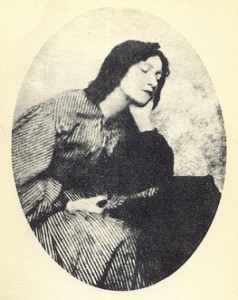
Friedrich Hölderlin
(1770-1843)
An Stella
Du gute Stella! wähnest du mich beglückt,
Wann ich im Tale still und verlassen, und
Von dir vergessen wandle, wann in
Flüchtigen Freuden dein Leben hinhüpft?
Schon oft, wenn meine Brüder, die Glückliche,
So harmlos schliefen, blickt ich hinauf, und fragt
Im Geiste, ob ich glücklich seie –
Bin ich ein glücklicher Jüngling, Stella?
Es streut der Schöpfer seliges Lächeln oft
In meine Tage, gibt mir der heiligen
Empfindungen, der Freuden, recht zu
Handeln, so viele, der gute Schöpfer:
Doch gibt es Wünsche, denen der Spötter höhnt –
O Stella! du nicht! höhne dem Armen nicht! –
Gibt unerfüllte Wünsche – – Tugend,
Hehre Gefährtin! du kennst die Wünsche.
Ach laß mich weinen! – nein! ich will heiter sein!
Ist ja nimmer gewünscht wird, wo
Der Sterbliche sein Schicksal preiset, –
Dort ist es, wo ich dich wiedersehe.
Und stürb ich erst mit grauem, gebeugtem Haupt
Nach langem Sehnen, endlich erlöst zu sein,
Und sähe dich als Pilger nimmer,
Stella! so seh ich dich jenseits wieder.
Friedrich Hölderlin poetry
fleursdumal.nl magazine
More in: Archive G-H, Hölderlin, Friedrich
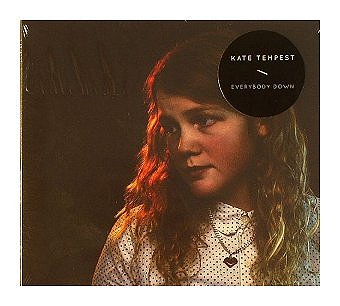
Kate Tempest
new album
Everybody
Down
There’s a
strong, vibrant
formal tradition
in hip hop:
the story rhyme
Rather than the bragging and boasting of many raps, in a story rhyme the MC presents a narrative – a street update of Ovid or Homer if you want to get hifalutin about it. Traced back by some to “The Message” by Melle Mel, few would dispute that it reached some sort of a peak with Slick Rick’s first album, and was carried forward by the likes of Biggie and Eminem. It also had a profound influence on rap in the UK, with artists like Roots Manuva using the form to represent themselves and their city in a myriad of new ways.
Kate Tempest is best known as a poet, perhaps a performance poet or a spoken word artist. She has a novel coming out next year with Bloomsbury. But ask Kate what she is and she’s more likely to say she’s a rapper who writes. That’s her first love. Listen to her voice, her cadences, the accent, and you’ll hear more of Skinnyman than Seamus Heaney, a veteran of Deal Real’s legendary Friday night rap battles but also someone at home doing a book reading at Foyles.
Kate Tempest understands the story rhyme, loves it. Which is why Everybody Down is something like a “novel rhyme” – twelve ‘chapters’ telling one long, complex story, a unique, one-off project, almost unique in the history of the form.
Dan Carey aka Mr Dan is one of the UK’s best known and most highly-rated producers. He’s worked with or remixed Bat For Lashes, Toy, MIA, Chairlift and Hot Chip (and just about everyone in between). When the two met, Carey invited Tempest to come through to his South London studio to muck about on a track or two. In a burst of intense creativity, they put down the whole twelve track album in a fortnight having spent almost a year developing the characters and story.
The result is a revelation. Tempest takes the tropes of the hip hop story – drugs, money, gangsters – and brings them to life in a whole new way, a London way, but also a completely personal way, where she inhabits the different characters and shows the boredom and fear in their lives rather than some faked glamour, shows more than anything their need for love.
Carey, meanwhile, sculpts soundscapes that pay tribute to the roots of hip hop while melding into the themes Tempest addresses, tough and gritty but intensely musical, the sound of a wet winter’s night out in London. He even got US singer-songwriter Willy Mason to contribute a chorus! In the end we get an audio story Dickens might have tried to write, one which is, in Tempest’s words, quite simply about “loving more.”
Kate Tempest has released records on Greco-Roman and Speedy Wunderground and for a long time fronted the band Sound Of Rum (Sunday Best). She won the Ted Hughes Poetry Prize for her play “Brand New Ancients” , which led The Guardian to describe her as “one of the brightest talents around.” Her forthcoming novel for Bloomsbury features the characters and the world built in Everybody Down, with a chapter correlating to each track.
But it’s here on this stunning, sustained piece of work, where each track works on it own, that music fans will hear beyond doubt just what a talent she is.

Kate Tempest started out when she was 16, rapping at strangers on night busses and pestering mc’s to let her on the mic at raves. Ten years later she is a published playwright, novelist, poet and respected recording artist. Her work includes Balance, her first album with band Sound of Rum; Everything Speaks in its Own Way her first collection of poems, the critically acclaimed plays Wasted, Glasshouse and Hopelessly Devoted. Brand New Ancients, her self-performed epic poem to a live score, won the Ted Hughes prize 2013 and the Herald Angel at Edinburgh Fringe.It has sold out tours in the UK and New York and is published by Picador. Her second collection of poetry, Hold Your Own, will be published by Picador on October 2014. Her debut novel, The Bricks That Built The Houses, sold in a highly competitive auction to Bloomsbury and will be published in territories including the UK, US, France, Holland and Brazil in Spring 2015. Excitingly, each track on the record correlates with a chapter in the novel, in a groundbreaking cross-genre experience.
Her single Our Town, with producers letthemusicplay was recently released on Greco-Roman records. Kate has featured on songs with Sinead O Connor, Bastille, the King Blues, Damien Dempsey and Landslide. She has toured extensively, supporting Billy Bragg on his UK tour, as well as supporting Scroobius Pip, Femi Kuti, Saul Williams and John Cooper Clarke. She is 2 x slam winner at the prestigious Nu-Yorican poetry cafe in New York and has played all the major UK and European music festivals either solo or with Sound of Rum. She’s headlined Latitude festival and has been featured on the BBC’s Glastonbury highlights, Channel 4, BBC Radio 1,4 and 6, as well as XFM and the Charlie Rose Show (Bloomberg) in the US.
Kate’s new album Everybody Down is released in May 2014 on Big Dada records. It was produced by Dan Carey aka Mr Dan who is one of the UK’s best known and most highly-rated producers. When the two met, Carey invited Tempest to come through to his South London studio to muck about on a track or two. In a burst of intense creativity, they put down the whole twelve track album in a fortnight having spent almost a year developing the characters and story. Kate is currently working on a new collection of poems, (to be published by Picador in 2014).
fleursdumal.nl magazine
More in: Archive S-T, Art & Literature News, Kate/Kae Tempest, MUSIC, Poetry Slam, Tempest, Kate/Kae
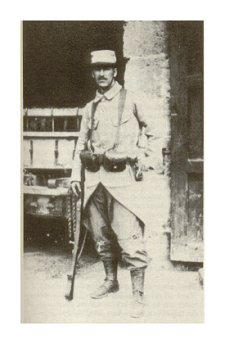
Alan Seeger
(1888-1916)
Resurgam
Exiled afar from youth and happy love,
If Death should ravish my fond spirit hence
I have no doubt but, like a homing dove,
It would return to its dear residence,
And through a thousand stars find out the road
Back into earthly flesh that was its loved abode.
Alan Seeger poetry
fleursdumal.nl magazine
More in: Archive S-T, Seeger, Alan
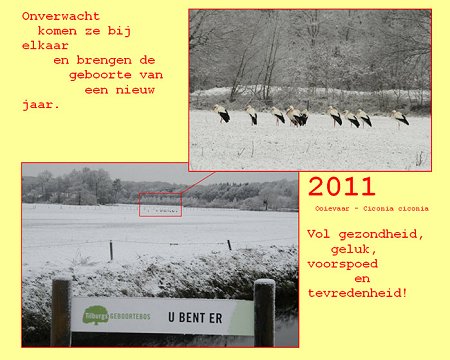
Onverwachte nieuwjaarskaart
Misschien de mooiste, maar in elk geval de apartste nieuwjaarskaart via e-mail ontving ik deze keer van Ad en Tonny Kolen. Dat Ad een bijzonder enthousiaste vogelaar is, weet ik al sinds ik hem jaren geleden interviewde voor het Brabants Dagblad. Maar dat hij ook mooie foto’s kon maken van vogels, was me ontschoten. En toen hij me een nieuwjaarskaart stuurde met daarop een foto van een groepje ooievaars nabij het zogeheten Geboortebos in Tilburg-Noord dacht ik eerlijk gezegd in eerste instantie aan Photoshop.
Maar nee, er stond een andere foto bij waarop dezelfde ooievaars van dichtbij te zien waren. En inderdaad, Ad haalde alle twijfel weg toen hij terugmailde dat het om ‘echte foto’s’ ging: ‘Ze zijn vrijdag 17 december 2010 genomen. Vanuit het Noorderbos langs de Zandley met de TV-toren op de achtergrond. De groep Ooievaars werd al eerder, de 14e , door een vriend van mij gezien tussen de Spinder en het Leikeven. Onverwacht kwam ik ze hier een paar dagen later tegen.’
Volgens hem gaat het om nakomelingen van het project ‘Herintroductie van de ooievaar in Nederland’ waarmee Vogelbescherming Nederland in 1969 van start ging. Dat programma is in zoverre succesvol dat Nederland inmiddels honderden broedparen telt – met daarbij de aantekening dat de meeste paren afhankelijk zijn van menselijke hulp, ondermeer in de vorm van voedsel. Ad: ‘Hoewel het project is beëindigd, worden nog Ooievaars bij gevoerd die soms op drift gaan zoals de groep die hier werd aangetroffen.’
Zijn nieuwjaarskaart liet hij vergezeld gaan van de volgende tekst:
Onverwacht komen ze bij elkaar
en brengen de geboorte van een nieuw jaar.
Vol gezondheid, geluk, voorspoed en tevredenheid!
Een wens, waarbij ik me graag aansluit.
Joep Eijkens

fleursdumal.nl magazine
eerder gepubliceerd op www.cubra.nl
More in: - Fotoalbum Joep Eijkens, - Objets Trouvés (Ready-Mades)
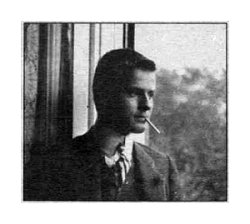
Hans Leybold
(1892-1914)
Konfusion – Ein Film
Plötzlich sprangen in den Straßen Gräber auf wie Erbsenschoten,
und jämmerliche Wesen wälzten sich heraus, die drohten
mit ihren blassgebleichten Knochen ihren Ururenkeln:
Die stoben fort und auseinander, als brennte es in ihren Schenkeln,
Pest oder Cholera im Bauch oder Jüngster Tag am Ende
(man muss doch sehn, ob man Rettung fände,
man hat sein kleines Leben lieb; die Hände,
die sich über alles strecken – –
wer weiß, ob man schlauer ist, versucht, sich zu verstecken).
Sie hopsen, springen ängstlich über Straßenbahngeleise
sie tanzen durcheinander: jeder in seiner Weise,
der eine verkriecht sich im Lokus, um sich zu retten,
der verwälzt sich tief in seine Betten,
viele fallen über die Geländer hoher Brücken,
fallen in hochgeschwollene Ströme, müssen in großen Schlücken
gelbes Wasser saufen, andere aber drücken
voll Furcht vor Unbekanntem sich an ihre Weiber.
Auf einmal greift eine unmäßig große Hand vom Himmel,
schiebt sich langsam durch chaotische Gewimmel,
plättet die Straßen als wären sie Wäsche,
greift aus dem Gewühl sich ein paar besonders fesche
Kokotten und Kavaliere, ein paar dicke Kommerzienräte,
stört in den diversen Salons die Abschiedsfete,
stürzt Börse und Kirche und Rathaus um, als mähte
sie Gras … hebt sich, verschwindet … nichts ist passiert.
Ein Gentleman sieht nach, außerordentlich blasiert.
Hans Leybold poetry
fleursdumal.nl magazine
More in: *War Poetry Archive, Archive K-L, Hans Leybold, Leybold, Hans

Eugène Marais
(1871–1936)
Klaas Vakie
Hy stoot die voordeur stadig oop,
en in die skadu sien ek hom;
sy swart manel is oopgeknoop,
sy snaakse lyfie hoepelkrom;
sy lang gesig is uitgedroog,
hy staat by my skaars skouerhoog!
Sy ogies knip, sy lippe lag,
sy langbol-hoed is in sy hand;
hy kom van buite uit die nag,
en bly net in die skadurand.
Een kers brand stadig in die tuit,
die ander flikker heen en weer;
en langs my, deur die onderruit,
daar loer die nag so swart as kruit!
Die skadu’s – kort en dik en bont –
spring op die vloer soos lammers rond!
Eugène Marais poetry
fleursdumal.nl magazine
More in: Archive M-N, Eugène Marais, Marais, Eugène

Renée Vivien
(1877-1909)
Your Strange Hair
Your strange hair, cold light,
Has pale glows and blond dullness;
Your gaze has the blue of ether and waves;
Your gown has the chill of the breeze and the woods.
I burn the whiteness of your fingers with kisses.
The night air spreads the dust from many worlds.
Still I don’t know anymore, in the heart of those deep nights,
How to see you with the passion of yesterday.
The moon grazed you with a slanted glow …
It was terrible, like prophetic lightning
Revealing the hideous below your beauty.
I saw-as one sees a flower fade-
On your mouth, like summer auroras,
The withered smile of an old whore.
Renée Vivien poetry
fleursdumal.nl magazine
More in: Archive U-V, Renée Vivien, Vivien, Renée

The owl
by Henry Wadsworth Longfellow
The owl, —
Au
The owl
Au
The great black
Owl
Au
Hi! a! haa!
Henry Wadsworth Longfellow, letter to Ferdinand Freiligrath, January 11, 1856; adapted from Henry Rowe Schoolcraft, Information Respecting the History, Condition, and Prospects of the Indian Tribes of the United States, vol. I, 1851. (Source: UbuWeb)
fleursdumal.nl magazine
More in: Archive K-L, Longfellow, Henry Wadsworth

The Sorrows of Young Werther (44) by J.W. von Goethe
SEPTEMBER 5.
Charlotte had written a letter to her husband in the country, where he
was detained by business. It commenced, “My dearest love, return as
soon as possible: I await you with a thousand raptures.” A friend who
arrived, brought word, that, for certain reasons, he could not return
immediately. Charlotte’s letter was not forwarded, and the same evening
it fell into my hands. I read it, and smiled. She asked the reason.
“What a heavenly treasure is imagination:” I exclaimed; “I fancied for a
moment that this was written to me.” She paused, and seemed displeased.
I was silent.
SEPTEMBER 6.
It cost me much to part with the blue coat which I wore the first time I
danced with Charlotte. But I could not possibly wear it any longer.
But I have ordered a new one, precisely similar, even to the collar and
sleeves, as well as a new waistcoat and pantaloons.
But it does not produce the same effect upon me. I know not how it is,
but I hope in time I shall like it better.
SEPTEMBER 12.
She has been absent for some days. She went to meet Albert. To-day
I visited her: she rose to receive me, and I kissed her hand most
tenderly.
A canary at the moment flew from a mirror, and settled upon her
shoulder. “Here is a new friend,” she observed, while she made him perch
upon her hand: “he is a present for the children. What a dear he is!
Look at him! When I feed him, he flutters with his wings, and pecks so
nicely. He kisses me, too, only look!”
She held the bird to her mouth; and he pressed her sweet lips with
so much fervour that he seemed to feel the excess of bliss which he
enjoyed.
“He shall kiss you too,” she added; and then she held the bird toward
me. His little beak moved from her mouth to mine, and the delightful
sensation seemed like the forerunner of the sweetest bliss.
“A kiss,” I observed, “does not seem to satisfy him: he wishes for food,
and seems disappointed by these unsatisfactory endearments.”
“But he eats out of my mouth,” she continued, and extended her lips to
him containing seed; and she smiled with all the charm of a being who
has allowed an innocent participation of her love.
I turned my face away. She should not act thus. She ought not to excite
my imagination with such displays of heavenly innocence and happiness,
nor awaken my heart from its slumbers, in which it dreams of the
worthlessness of life! And why not? Because she knows how much I love
her.
The Sorrows of Young Werther (Die Leiden des jungen Werther) by J.W. von Goethe. Translated by R.D. Boylan.
To be continued
fleursdumal.nl magazine
More in: -Die Leiden des jungen Werther, Goethe, Johann Wolfgang von
Thank you for reading Fleurs du Mal - magazine for art & literature